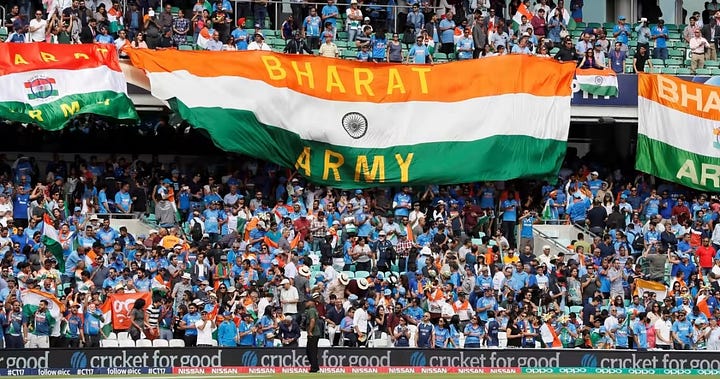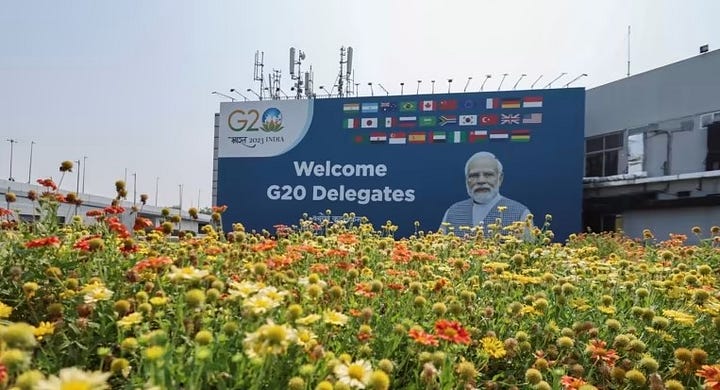Opposition slams abrupt switch to Hindi term as part of Modi’s nationalist agenda

A recent Group of 20 (G20) dinner invitation’s use of “Bharat” instead of “India” has ignited a contentious discussion in New Delhi, with opposition parties accusing Prime Minister Narendra Modi’s government of attempting a unilateral renaming of the nation.
The dinner invitation for an event scheduled for the upcoming Saturday, extended to dignitaries attending the G20 summit over the weekend, featured the title “President of Bharat” rather than the customary “President of India.” Although the reason behind this alteration remains undisclosed, an Indian government source informed Nikkei Asia that it marked the first instance of the country’s Hindi name being used in such a context.
Speculation is now rife that a bill to officially rename the country might be proposed during a special parliamentary session scheduled by the government from September 18 to 22. So far, the government has not clarified the agenda for this session.
The name “Bharat” originates from Sanskrit and is not uncommon. Article 1 of the Indian Constitution states, “India, that is Bharat, shall be a Union of States,” acknowledging both the English and Hindi names of the nation, which gained independence in 1947 after nearly two centuries of British rule.
It’s worth noting that India would not be the first country to seek a name change. For example, Turkey has recently sought international recognition as “Turkiye.”
In India, however, critics perceive this sudden departure from convention as part of a pattern by Prime Minister Modi’s Bharatiya Janata Party government, which is seen as advancing its Hindu nationalist agenda while attempting to eliminate vestiges of colonial rule by renaming roads and renovating historical buildings. This development also coincides with a coalition of more than two dozen opposition parties gearing up for the 2024 elections under the banner of INDIA — an acronym representing the Indian National Developmental Inclusive Alliance.
While there is no constitutional objection to calling India “Bharat”, which is one of the country’s two official names, I hope the government will not be so foolish as to completely dispense with “India”, which has incalculable brand value built up over centuries. We should… pic.twitter.com/V6ucaIfWqj
— Shashi Tharoor (@ShashiTharoor) September 5, 2023
“While there is no constitutional objection to referring to India as ‘Bharat,’ which is one of the country’s two official names, I hope the government will not be so hasty as to entirely discard ‘India,’ a name that has amassed immeasurable brand value over centuries,” remarked Shashi Tharoor, a senior leader of the primary opposition party, the Indian National Congress, in a post on X, formerly known as Twitter. Tharoor’s party is a part of the INDIA coalition. Mehbooba Mufti, an ally in the opposition alliance from the northern Jammu and Kashmir region, criticized the BJP’s perceived “aversion to India’s foundational principle of unity in diversity.”
She wrote on X, “By reducing India’s many names from Hindustan & India to now only Bharat shows its pettiness & intolerance.”
“Hindustan,” another commonly used name for the country, has Persian origins, meaning “the land of Indus,” and was widely employed during the Mughal era. The British referred to the subcontinent as “India,” derived from the Indus River. In ancient Hindu scriptures and texts, the region was referred to as “Bharat.”
Delhi Chief Minister Arvind Kejriwal, whose Aam Aadmi Party is also part of the new opposition alliance, suggested that the BJP’s concerns about losing votes were prompting such tactics. He mentioned that although he lacked official information regarding the renaming of the country, rumors were circulating that this move was in response to several parties forming an alliance called INDIA. Kejriwal emphasized that the nation belongs to 1.4 billion people and not to a single political party.
On the other hand, vocal supporters of using “Bharat” include Himanta Biswa Sarma, a senior BJP leader and the chief minister of the northeastern state of Assam. Sarma argued that the name “Bharat” has been in use for thousands of years, asserting, “Our country was ‘Bharat,’ is ‘Bharat,’ and will remain ‘Bharat.’”

Sarma also pointed out that the Congress party also uses “Bharat,” citing senior leader Rahul Gandhi’s “Bharat Jodo Yatra” (“Unite India March”), a 3,500-kilometer trek he undertook to reconnect with voters across the country. Sarma contended, “When it suits you, you use ‘Bharat,’ and when it doesn’t suit you, you become India. This whole Congress party is against Hindus and ‘Bharat.’”
The controversy surrounding the G20 invitation follows remarks made the previous Friday by Mohan Bhagwat, the head of the BJP’s ideological core organization, Rashtriya Swayamsevak Sangh, who encouraged citizens to cease using the name “India” and adopt “Bharat” instead.
Bhagwat stated at an event in Guwahati, “Sometimes we have to say ‘India’ when communicating with English-speaking people, [but] that is not needed. We [should use] ‘Bharat’ when we are writing, speaking, and everywhere else.”
Former Indian cricketer Virender Sehwag, who boasts 23.4 million followers on X, also weighed in on the matter. He posted that “India” is “a name given by the British, and it has been long overdue to officially reclaim our original name ‘Bharat.’”
The government’s true intentions remain unclear. After the debate erupted, Anurag Thakur, Modi’s Information and Broadcasting Minister, dismissed talk of an official name change during the upcoming parliamentary session, stating to The Indian Express newspaper that it was based on “rumors.”
However, another government document surfaced this week related to Modi’s visit to Indonesia for the ASEAN-India and East Asia summits, where he was referred to as the “Prime Minister of Bharat.”